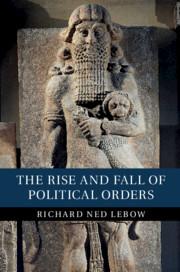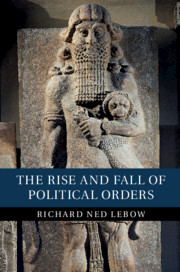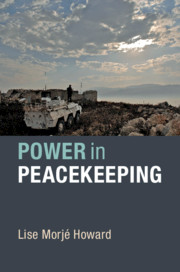Robustness and Fragility of Political Orders
This volume focuses on the assessments political actors make of the relative fragility and robustness of political orders. The core argument developed and explored throughout its different chapters is that such assessments are subjective and informed by contextually specific historical experiences that have important implications for how leaders respond. Their responses, in turn, feed into processes by which political orders change. The volume's contributions span analyses of political orders at the state, regional and global levels. They demonstrate that assessments of fragility and robustness have important policy implications but that the accuracy of assessments can only be known with certainty ex post facto. The volume will appeal to scholars and advanced students of international relations and comparative politics working on national and international orders.
- Recognizes the subjective nature of all assessments of fragility and robustness
- Analyzes orders at multiple levels (state, regional, and international)
- Features contributions from leading scholars
Reviews & endorsements
‘This timely volume examines the political robustness and fragility of political orders, which has become a pressing issue today. By focusing on the role of leaders at the domestic, regional, and international levels of analysis, this book provides a wealth of historical insights for understanding our present situation.' Brian C. Schmidt, Carleton University, Ottawa, Canada
‘Eight specialists consider the future of democratic governance, providing rich case studies of the conditions under which choices made by political actors have undermined or strengthened the stability of their political orders. A stimulating and suggestive read that generates novel insights.' George Breslauer, University of California, Berkeley
Product details
January 2024Paperback
9781009265072
328 pages
228 × 152 × 17 mm
0.48kg
1 b/w illus.
Available
Table of Contents
- 1. Introduction Richard Ned Lebow and Ludvig Norman
- 2. Robustness and fragility of political orders Richard Ned Lebow
- 3. End of democracy or recurrent conflict: minimalist democracy, legitimacy crisis, and political equality Peter Breiner
- 4. Politics and the administrative state: perceptions of stability and fragility in Weimar Germany Paul Petzschmann
- 5. Roots in common: the fragility-robustness of democratic and ecological regimes Andrew Lawrence
- 6. The end of communist rule in Europe: a comparative perspective on the fragility and robustness of regimes Archie Brown
- 7. Democracy's fragility and the European political order: functionalism, militant democracy, and crisis Ludvig Norman
- 8. The American Fragility-Robustness Nexus Ariane Chebel d'Appollonia
- 9. The perils of choice: structure and agency in EU crisis management Douglas Webber
- 10. Conclusion Richard Ned Lebow and Ludvig Norman.









